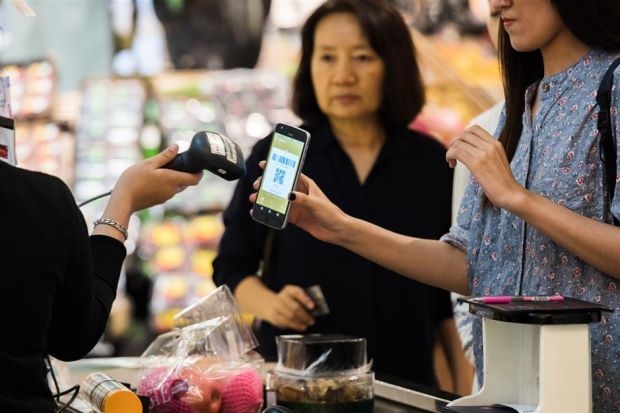Singapore pledges to cut cash, checks on path to digital economy
SINGAPORE (20 June 2018): Singapore is accelerating the shift toward digital payments by pledging to eliminate check usage by 2025 and slash cash withdrawals from automated telling machines.
Both payment methods are declining in popularity, Education Minister Ong Ye Kung, who sits on the Monetary Authority of Singapore board, said in a speech on Wednesday night. To promote electronic fund transfers, the government-endorsed payments platform, called PayNow, will be extended to companies starting Aug. 13.

Figure 1: Singapore is embracing technology to enhance its status as a regional financial hub and compete with other major cities including Hong Kong and London. — Bloomberg
Singapore is embracing technology to enhance its status as a regional financial hub and compete with other major cities including Hong Kong and London. Competition at home is heating up as its largest bank DBS Group Holdings Ltd. vies with ride-hailing firm Grab Inc. for digital payments, while Chinese giants such as Ant Financial are looking to expand in Southeast Asia.
“Our aim is not to be a cashless society, but to use less cash and more e-payments,” Ong said. “When the level of convenience and confidence crosses a critical tipping point, adoption will rise across our population within a short time and become pervasive.”
PayNow expansion
Today, there are more than 1.4 million PayNow registrations, and almost S$900mil (RM2.65bil) has been transferred through the service since its launch last year, Ong said.
The expansion of the service will allow corporate clients of seven banks to transfer funds via PayNow in Singapore. They are DBS, Oversea-Chinese Banking Corp, United Overseas Bank Ltd, Standard Chartered Plc, HSBC Holdings Plc, Malayan Banking Bhd and Citigroup Inc, according to the bank association.
Cash withdrawals at ATMs have been falling by more than S$300mil (RM883.60mil) a year, Ong said. Checks have also been declining in popularity as people gravitate to electronic systems. The proportion of check transactions to electronic payments known as FAST and GIRO was about 28% in 2017, down from 37% in 2015, and may come down to 15% in 2020, Ong said.
“Sweden has done it. We can too,” Ong said, referring to becoming a check-free society.
Ong also said that while Singapore is encouraging competition among digital payment service providers to give consumers choices, it will also ensure the various platforms can operate using a standardised quick-read code system. The code, known as SG QR, is being implemented later this year.
“Our goal is to allow for a variety of payment solutions that are competing yet inter-operable and convenient, providing choice to consumers and encouraging innovation,” Ong said. “That is the key principle in our approach to e-payment.”
[Source: “Singapore pledges to cut cash, checks on path to digital economy” published by Bloomberg]Photo Credits: Bloomberg





